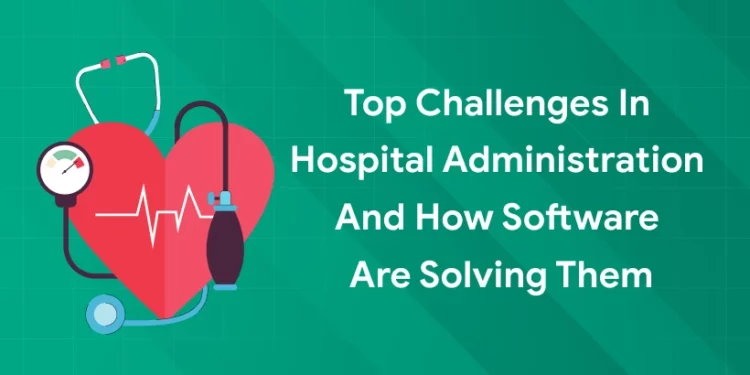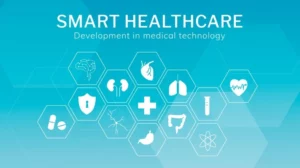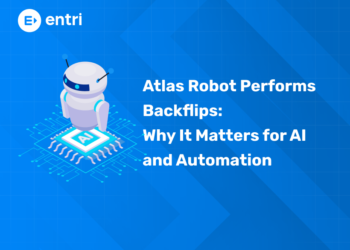Table of Contents
Key Takeaways:
- Workforce shortages, rising costs, and cybersecurity risks are among the biggest pain points for hospital administrators in 2025.
- Hospital Management Software (HMS) and ERP systems are driving digital transformation by improving efficiency, data security, and decision-making.
- Cloud-based solutions and automation are central to cost control, workflow optimization, and compliance tracking.
- The integration of AI systems is helping hospitals predict patient demand and streamline resource allocation.
- Entri’s Hospital Administration Course helps professionals gain the managerial and digital skills needed for success in modern healthcare roles.
Introduction
Running a hospital today is like conducting an orchestra—each department must work in perfect harmony while following strict protocols, handling emergencies, managing finances, and ensuring patients receive compassionate care. Yet, behind every smooth-running hospital lies a web of administrative challenges that can leave even experienced managers overwhelmed.
Whether it’s managing burnt-out staff, juggling spreadsheets of complex data, or meeting ever-tighter budgets, the role of a hospital administrator has evolved from operational to strategic. Thankfully, digital tools are rewriting the playbook—empowering administrators to automate, optimize, and elevate care delivery while maintaining the human touch that defines healthcare.
Challenge 1: Workforce Shortages and Burnout
1: What is the primary role of a hospital administrator?
Healthcare workforce shortages are at critical levels. A 2025 report found that 48% of hospital executives believe their organizations aren’t equipped to handle patient volumes due to staff shortages. The growing demands, overtime, and emotional toll are pushing medical staff to burnout.
How Software Helps:
- Advanced HR dashboards automate scheduling, shift planning, and salary reviews.
- Employee engagement tools monitor satisfaction and identify burnout triggers.
- E-learning modules within ERP systems accelerate onboarding for new hires.
Tip: Hospitals using predictive scheduling tools have reduced overtime costs by 20–25% while improving staff satisfaction.
Hospital Administration Course with Assured Career Growth
Hospital Administration Course by Entri App: Master essential healthcare management skills, gain certification, and secure top roles in leading hospitals
Join Now!Challenge 2: Rising Operational Costs
According to the American Hospital Association (AHA), workforce expenses alone account for 56% of total hospital costs, and tariffs on medical imports are projected to raise expenses by another 15% in 2025. Add to that underpayments from insurers and increasing energy bills, and hospitals are under enormous financial strain.
How Software Helps:
- ERP systems provide transparent budgeting and real-time cost tracking.
- Automation reduces billing errors and manual administrative work.
- Predictive analytics help forecast financial performance and allocate resources effectively.
Tip: Hospitals adopting cloud-based ERP platforms have reported a 30% improvement in financial reporting accuracy.
Hospital Cost Breakdown (2025)
| Expense Category | % of Total Costs | Key Contributor |
|---|---|---|
| Workforce Salaries | 56% | Wage increases and overtime |
| Equipment & Supplies | 24% | Import tariffs and inflation |
| Operating Room Efficiency | 21% | Delays and capacity challenges |
| Data Management & IT Systems | 12% | Outdated technology and cybersecurity expenses |
| Administration & Billing | 10% | Claim denials and inefficiencies |
Challenge 3: Cybersecurity Threats
Hospitals are among the top targets for cyberattacks. In 2024 alone, 180 ransomware attacks hit healthcare systems, with average ransom payments near $900,000. The true cost, however, comes in downtime—disrupting patient care and trust.
How Software Helps:
- Multi-layered firewalls and AI-driven anomaly detection prevent breaches.
- Encryption protocols protect patient data in motion and at rest.
- HMS platforms automatically update to ensure HIPAA and GDPR compliance.
Tip: Hospitals that implemented cloud security frameworks saw a 40% reduction in breach-related losses.
Challenge 4: Inefficient Patient Data Management
Even in 2025, many hospitals continue to juggle paper and disconnected systems. This fragmentation leads to lost data, double work, and delayed care delivery.
How Software Helps:
- Electronic Health Record (EHR) integration centralizes patient information across departments.
- AI-assisted documentation minimizes human error and speeds up charting.
- Built-in communication modules enable instant collaboration between doctors, labs, and pharmacies.
Know more about EHRs in this blog – What Is a Hospital Information System (HIS)?
Tip: Hospitals using integrated HMS tools report up to 50% faster retrieval of patient records, improving treatment turnaround times.
Hospital Administration Course with Assured Career Growth
Hospital Administration Course by Entri App: Master essential healthcare management skills, gain certification, and secure top roles in leading hospitals
Join Now!Challenge 5: Fragmented Communication
Miscommunication causes nearly 30% of all medical errors, according to recent healthcare management studies. With teams spread across departments and locations, keeping everyone aligned is difficult.
How Software Helps:
- Real-time communication dashboards connect departments instantly.
- Secure messaging tools improve coordination between nurses, doctors, and billing staff.
- Mobile apps allow clinicians to receive updates and alerts during rounds.
Tip: Encouraging all staff to use a single internal communication system drastically reduces update delays and miscommunication incidents.
Challenge 6: Compliance and Reporting Burden
Reporting, audits, and regulatory compliance consume an estimated 2–3 hours of admin work per healthcare worker per week. Manual processes also increase the risk of inaccuracies.
How Software Helps:
- Compliance modules automatically generate statutory and financial reports.
- Audit trails ensure every change is recorded and time-stamped.
- Dashboards allow executives to track compliance metrics in real time.
Tip: Integrating compliance tracking within ERP systems helps reduce audit preparation time by up to 60%.
Challenge 7: Adapting to Digital Transformation
Hospitals are embracing digital tools—but adoption is often hindered by poor user training and resistance to change.
How Software Helps:
- Intuitive user interfaces simplify daily tasks for non-technical staff.
- Guided workflows reduce learning time for new users.
- AI-based tutorials and feedback tools ensure smooth adoption.
Tip: Hospitals that phased their tech rollout (department by department) reported higher acceptance rates and fewer disruptions.
You might also like: What is Ellider Software?
Key Features of an Ideal Hospital Management Software
An effective Hospital Management Software (HMS) or Enterprise Resource Planning (ERP) system serves as the digital backbone of healthcare operations. In 2025, leading systems focus on automation, interoperability, and intelligence — bridging administrative efficiency with clinical excellence.
Core Functional Modules
A good HMS doesn’t just automate paperwork — it unites departments, eliminating silos and improving communication.
Essential Modules Include:
- Patient Administration Module: Registers patients, tracks appointments, and maintains digital health records.
- Billing and Finance Module: Streamlines invoicing, insurance claims, and cost tracking, minimizing errors.
- HR and Scheduling Tools: Automate staff rostering, payroll, and attendance tracking.
- Inventory Management: Keeps tabs on drug supplies, medical equipment, and expiry alerts.
- Clinical and Laboratory Integration: Seamlessly connects doctors, labs, imaging, and pharmacy.
- Compliance and Audit Trail: Generates time-stamped logs and ensures HIPAA or NABH compliance automatically.
Advanced Features for 2025
Modern HMS platforms are evolving beyond basic automation. The best ones leverage AI, IoT, and cloud-based systems to power smarter decisions.
Cutting-edge Features:
- AI Analytics Dashboards: Brain of the system that predicts patient admissions, optimizes room usage, and identifies bottlenecks.
- Telehealth Integration: Enables video consultations and virtual prescription management.
- Chatbots and Patient Portals: Automates appointment scheduling and patient communication.
- Interoperability with Wearables & IoMT Devices: Real-time patient monitoring feeds into hospital databases.
- Cloud Security with Role-Based Access: Protects sensitive medical and financial data.
| Improvement Area | Traditional System | AI-driven HMS |
|---|---|---|
| Patient Record Access | Manual, delayed | Instant, centralized |
| Billing Errors | 15-20% | <5% |
| Operating Cost Reduction | Minimal | Up to 30% |
| Audit Preparation | Weeks | Real-time |
| Staff Coordination | Fragmented | Integrated dashboard |
Choosing the Right Software
Hospitals must select scalable, cloud-ready software that integrates with both clinical and operational systems. Key evaluation criteria include:
- Customization according to hospital size and use case.
- Robust data security features and user authentication.
- Modular architecture that supports future technology updates.
- Local vendor support and training for staff enablement.
Tip: Hospitals that adopted ERP-integrated HMS in 2025 reported a 28% rise in overall operational efficiency and shortened patient discharge times by 18%.
Learn more at What is a Hospital Management System?
Why Learn Hospital Administration Today
Modern hospital administrators must combine healthcare understanding with business and tech expertise. Entri’s Hospital Administration Course in Kerala bridges this gap—preparing learners to manage operations, people, and processes efficiently.
The course includes:
- Comprehensive modules on hospital management, quality assurance, and budgeting.
- Training in digital hospital tools, ERP systems, and patient-data analytics.
- Placement support with leading hospitals across Kerala.
- Industry mentorship to guide career development and interview preparation.
Outcome: Graduates are equipped for roles such as hospital manager, health operation executive, and quality controller—helping shape the next generation of healthcare leaders.
The Evolving Role of Hospital Administrators
Hospital administrators are no longer confined to handling operations behind the scenes — their roles in 2025 are deeply integrated with strategy, data analytics, and technology-driven care delivery. According to a 2025 BMJ and Healthcare Trends study, modern administrators now function as transformation leaders, balancing operational oversight with innovation and staff well-being.
Read in detail: How to Become a Hospital Administrator: Step-by-step Guide
From Managers to Strategic Leaders
Traditionally, hospital administrators managed logistics — bed capacity, staffing, and budgets. Today, they are strategic decision-makers driving digital and organizational change. The introduction of AI-based resource planning, telemedicine systems, and predictive patient management has transformed how hospitals operate. Modern administrators are bridging the gap between healthcare delivery and business intelligence.
Key Responsibilities Now Include:
- Leading digital transformation initiatives (like hospital ERP or EHR integration).
- Managing hybrid teams combining clinical and tech professionals.
- Using real-time analytics to optimize care demand and resource use.
- Ensuring financial efficiency under tighter compliance requirements.
- Building sustainable, patient-centered strategies that balance cost and quality.
Data and Technology Leadership
Hospital administrators must now understand data analytics, cybersecurity, and AI in healthcare workflows. They oversee predictive dashboards, use data modeling to forecast patient flow, and implement automation to reduce errors and costs.
| Skill Area | New Competency (2025) | Real-World Impact |
|---|---|---|
| Data Analytics | Ability to interpret clinical trends | Improved patient satisfaction and performance insights |
| Cybersecurity | Protecting EMRs and cloud data | Fewer data breaches and safer patient care |
| Operational Strategy | Implementing ERP and automation | Up to 40% boost in efficiency |
| Leadership | Managing digital-first teams | Higher staff retention and morale |
Human-Centric Leadership
Even with tech integration, the human side of hospital administration remains critical. Administrators are prioritizing staff well-being, equitable care access, and diversity in staffing. With 46% of healthcare leaders planning career transitions in 2025, strong leadership and communication skills are in greater demand than ever.
Tip: Hospitals that mix human-centered leadership with digital adoption report 20–25% better retention and 15% higher patient satisfaction.
People also read: Healthray HMS: The latest AI-Powered HMS
Conclusion
The healthcare industry is evolving faster than ever—pushed by new challenges and pulled by groundbreaking digital solutions. Hospitals that embrace modern management software and skilled administrators are better equipped to deliver seamless, compassionate, and data-driven patient care.
If you aspire to be part of this transformation, start your journey with Entri’s Hospital Administration Course. Learn from experts, gain practical experience, and step confidently into a rewarding leadership role in healthcare management.
| Also Read | |
| How to Become a Hospital Administrator | |
| Top Skills Needed for a Successful Career in Hospital Administration | |
| Career Pathways in Hospital and Healthcare Administration |
References
- https://www.deloitte.com/us/en/insights/industry/health-care/life-sciences-and-health-care-industry-outlooks/2025-global-health-care-executive-outlook.html
- https://ccdcare.com/resource-center/healthcare-challenges/
- https://fticommunications.com/2025-hospital-operations-survey-report/
- https://www.aha.org/press-releases/2025-04-30-new-aha-report-hospitals-and-health-systems-squeezed-persistent-economic-challenges
- https://www.mckinsey.com/industries/healthcare/our-insights/what-to-expect-in-us-healthcare-in-2025-and-beyond
- https://www.jneonatalsurg.com/index.php/jns/article/download/5231/4353/18734
- https://himcos.com/addressing-top-10-challenges-in-healthcare-with-erp/
- https://www.wipfli.com/insights/articles/hc-tc-7-challenges-that-drive-erp-modernization-in-healthcare
Hospital Administration Course with Assured Career Growth
Hospital Administration Course by Entri App: Master essential healthcare management skills, gain certification, and secure top roles in leading hospitals
Join Now!Frequently Asked Questions
What are the main challenges hospital administrators face in 2025?
Top challenges include workforce shortages, financial strain, cybersecurity breaches, and complex compliance demands.
How can HMS and ERP systems benefit hospital administration?
They integrate all hospital functions—finance, HR, patient management, and data analytics—into one central platform, improving transparency and accuracy.
Are hospital administration roles suitable for non-medical graduates?
Yes. Courses like Entri’s are designed for both medical and business backgrounds.
How are software tools improving healthcare management efficiency?
From automated billing to predictive analytics, software solutions cut manual work and optimize decision-making.
What’s the career growth potential in hospital administration?
With healthcare digitization accelerating, skilled administrators enjoy stable, high-demand careers across India and abroad.
















